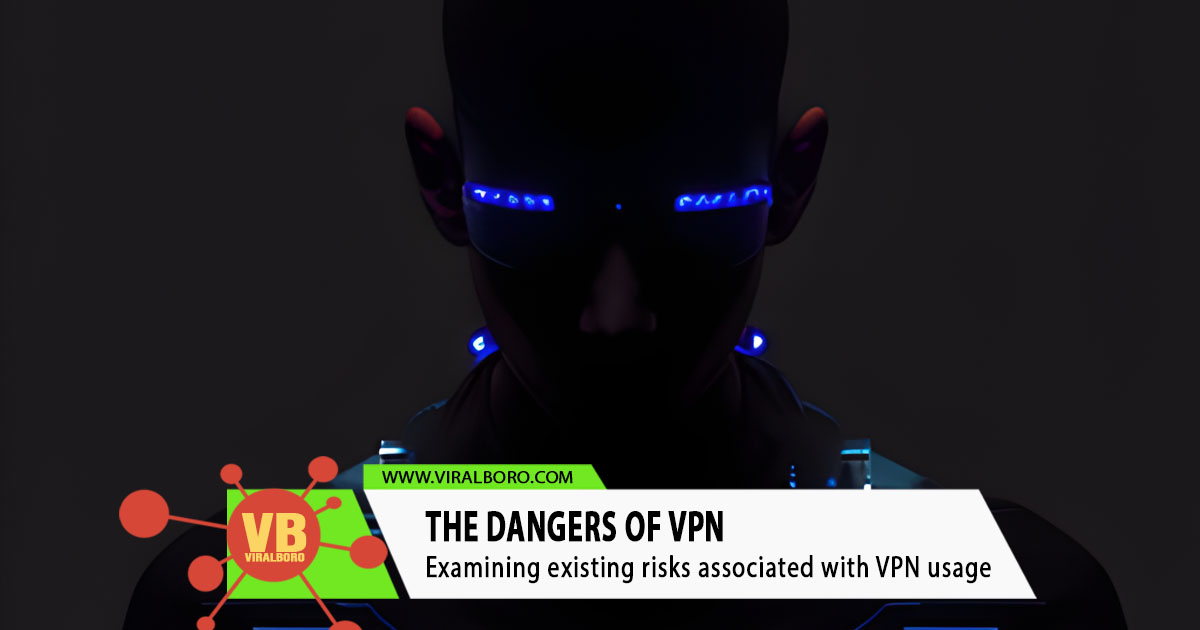The Complex Landscape of VPN Usage.
In today's interconnected world, the adoption of Virtual Private Networks (VPNs) has surged as users seek to enhance their online security, protect their privacy, and access geo-restricted content. VPNs offer a secure tunnel for internet traffic, encrypting data and masking users' IP addresses, effectively shielding them from prying eyes. However, while VPNs provide a plethora of benefits, they also harbor potential dangers that users should be keenly aware of. Examining existing risks associated with VPN usage can shed light on the multifaceted problem.
The Illusion of Anonymity:
One of the fundamental promises of VPNs is the preservation of anonymity. However, recent cases have demonstrated that this promise can sometimes be illusory. In 2015, the case of "HideMyAss" highlighted the potential shortcomings of VPNs in maintaining anonymity. In this case, law enforcement authorities were able to track down and arrest an individual who had used the VPN service under the assumption that their identity was concealed. The VPN provider cooperated with authorities, handing over logs that contained incriminating evidence.
This incident underscores the fact that not all VPN providers are committed to safeguarding user anonymity. Users must be cautious in selecting a trustworthy VPN service that has a transparent privacy policy and does not log user activity. It is important to remember that while a VPN can shield data from internet service providers and potential hackers, the VPN provider itself may still have access to user activity.
Data Security Concerns:
While VPNs are commonly touted as secure gateways, vulnerabilities can still emerge. A well-known case involving the hacking of a popular VPN provider in 2019 highlighted the potential dangers of relying solely on a VPN for data security. The breach exposed sensitive user information and cast doubts on the provider's security claims.
It is essential for users to recognize that a VPN does not replace other cybersecurity measures, such as using strong, unique passwords and enabling two-factor authentication. VPNs primarily protect data during transit but do not necessarily safeguard against malware, phishing attacks, or other security threats that can compromise a user's device.
Legal Implications:
The global nature of VPNs introduces a complex legal landscape. While VPNs are legal in many countries and serve legitimate purposes, their misuse can lead to legal troubles. A case in 2018 involving a man who used a VPN to engage in cyberstalking illustrates this aspect. While the individual believed that his online activities were concealed, law enforcement authorities were able to trace the VPN's IP address back to him. He was subsequently arrested and charged with harassment.
Users must understand that engaging in illegal activities, even while using a VPN, does not guarantee impunity. Law enforcement agencies can collaborate across borders to trace and apprehend individuals involved in criminal activities, irrespective of their use of VPNs.
Unintended Consequences:
VPNs are often employed to bypass geo-restrictions and access content available in other regions. However, this practice can have unintended consequences. The case of a gaming company facing a distributed denial-of-service (DDoS) attack serves as a cautionary tale. The attackers exploited the VPN's multiple endpoints to launch the attack from various locations, making it difficult for the company to mitigate the threat effectively.
This incident underscores the potential risks associated with allowing unrestricted access to multiple endpoints through a VPN. Users seeking to bypass geo-restrictions should be wary of inadvertently participating in malicious activities.
The world of Virtual Private Networks is multifaceted, offering a mix of advantages and pitfalls. While VPNs can undoubtedly enhance online security and privacy, users must approach their usage with caution. It is imperative to select a reputable VPN provider that prioritizes user privacy, security, and transparency. Moreover, users should understand that a VPN is just one component of a comprehensive cybersecurity strategy and should not replace other essential measures. The cases discussed above serve as reminders that no tool is foolproof, and a false sense of security can lead to dire consequences. In an era where digital footprints are increasingly indelible, users must be vigilant and well-informed about the potential dangers associated with VPN usage. By staying informed and practicing responsible digital behavior, individuals can maximize the benefits of VPNs while minimizing the risks.

